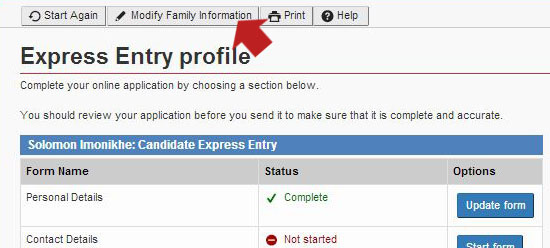An increase in express entry points with French language and designating your spouse as non-accompanying is possible. The former basis for a points increase came about owing to Canada’s immigration department issuing a new notice (during October 2020) on how French language will increase the chance of obtaining an Invitation To Apply.
The rationale for the change regarding the French language is to increase immigration for candidates under Express Entry with strong French language skills.
The previous points allocated for French-language were 15 points for a high degree of French language skill. As of 28 October 2020, the points for such a degree of French are 25.
The policy implications enhance the options for immigration to Canada. This change complements other programs such as the Francophone Mobility Program and various PNP programs. This may however be counter the government’s goal of settling new immigrants outside of Canada’s large cities, particularly if we presume that most French speakers outside of Quebec and New Brunswick are probably mostly located inside cities; that already established French rural presence would discourage new French speaking immigrants from settling in more rural areas which typically lack access to French services or education.
Spouse/Common-Law Accompanying to Canada
Express Entry Points With French, Spouse Non-Accompanying of course necessitates a discussion of the spouse. Indicating that your spouse or partner is not accompanying you to Canada, (or if they are a Canadian citizen or permanent resident) can lead to a more favorable point assessment under the Comprehensive Ranking System. However, in some cases this indication on your profile may lead to a delay in settling in Canada together with a spouse or partner, particularly if the spouse/partner must be sponsored in a separate application after the Express Entry candidate lands as a permanent resident.
In other cases some persons have timed their Express Entry and subsequent application after an Invitation To Apply in a way to add their spouse/common-law partner before landing as a permanent resident. Those who do not add their spouse/common-law partner before landing can nevertheless sponsor their spouse/common-law partner after landing as a permanent resident of Canada.
From a policy perspective, the immigration department is incentivizing Express Entry candidates to characterize their application as having a “non-accompanying” spouse/common-law partner. This may be a desire by Canada’s immigration department to try to limit the size of an immigrating family on an Express Entry expression of interest.
Enhance Your Express Entry Profile
If you’re considering the question of how to enhance your Express Entry profile, or aim to ensure that it is on a pathway to permanent resident status in Canada, contact us.


thanks, bot email!
Can you find me a sponsor?
I’m a student of high school and I want to futher my education to Canada 🙏
Hello to preserve confidentiality please email your question to clerk@chaudharylaw.wpenginepowered.com .